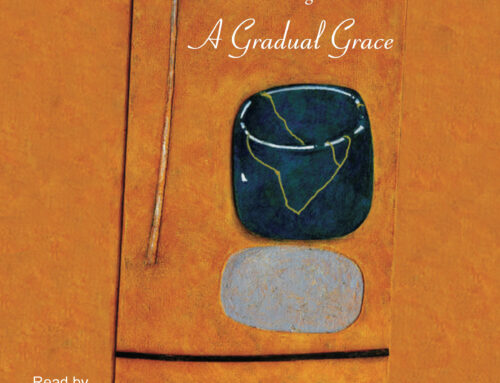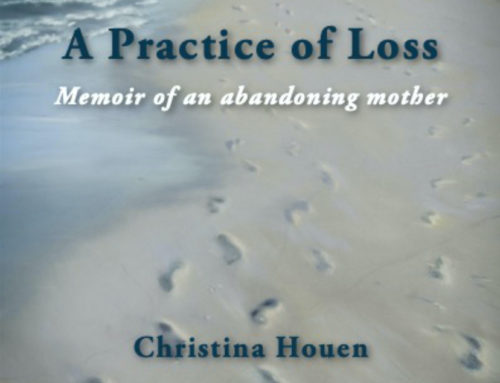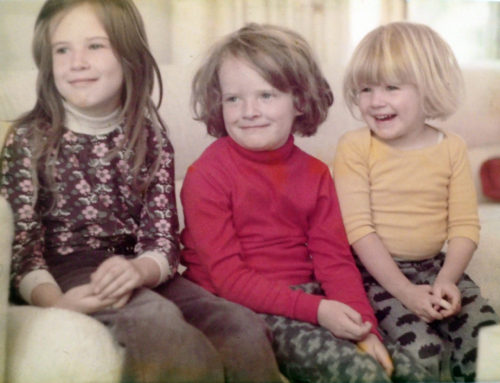The memoir of my first marriage and the loss of my children has been a long time gestating, with many revisions. Now, it is sitting in the wings, one step away from publication. I applied for a fellowship at Katharine Susannah Prichard Writer’s Centre, in the hills in Perth, and have just learned that I am successful. So in the first two weeks of September next year, I’ll be sitting in Katharine’s little house, looking out at the bush, the birds, the sky, and doing one last revision of Lost. I am pretty happy with it, but not sure I have the right structure; at present it’s chronological. So I’m inviting a mentor who has a published memoir to help me.
Here is the excerpt I submitted for my KSP application. The context is that, after I returned to Sydney without my children, who were abducted by their father and taken to America, I was lost, drifting. I tried to return to tertiary studies, but it wasn’t the lifeline I needed. So one day, I opened the paper. On one page was an ad for bus drivers. On the other, an ad for graduates to apply to do their mental health training at North Ryde Psychiatric Centre. I thought briefly about driving a bus around the streets of Sydney, and opted for the mental health job. It was my lifeline for the next twelve years. I learned that there was a very fine line between my life and those of the broken people I was nursing. There but for the grace of god, I thought every day, go I.
A fine line
Well, it’s not the brilliant career I once dreamed of, but it is a world, a different world, one that makes most of the conventions I have been brought up by seem hollow. Here, in the acute admissions ward that is my first placement, I find women and men who have been brought up to be normal, but who, through some misfortune of genetics or of life events, have fallen foul of the Australian dream. Young, old, middle-aged, fat, thin, ugly, attractive, well-educated, average, Australian-born, immigrant—any one of them could be my neighbour, my friend, a member of my family. There is nothing exceptional about any of them except that they are here, cast up on the shores of madness and neurosis.
Lost. As am I. Yet there is a fine line between us, one that puts me here as a nurse, a therapist, a custodian of their lives, and them as my patients, for as long as they stay.
After my first week of orientation, I am told to keep close observations on a woman who is acutely psychotic. Close obs, as we call it, is the only way we have, apart from the tranquillisers prescribed by the registrar, of containing someone who is disturbed, in a newish hospital where there are no locked doors. Straight jackets and locked wards began to be discarded in the late ’60s when most psychiatric patients — except for the hopelessly institutionalised, severely disabled, criminally insane or dangerous ones who haunt the corridors of the older institutions — were liberated to another kind of nightmare, the revolving door of short-term admissions, drugs and/or electroconvulsive therapy, and a half-life in hostels or digs or with a family whose tolerance is worn threadbare.
My patient has been given an injection to calm her, and is lying on the narrow bed, her eyes staring at the bare white ceiling and occasionally flickering from side to side in frightened fascination. The drug has stopped her restless pacing and explosive utterances, but has not stilled her troubled mind. Every now and then, she turns her head, frowning in concentration, as if she is listening to someone, then closes her eyes tight and turns her head away, or shakes her head in silent argument.
I ask her what she is watching, who she is listening to. She tells me that God and the devil are both in the room, and are fighting for her soul.
‘But Eva,’ I say, reaching for her hand, trying to reassure her, ‘ you know they’re not real. I can’t see or hear them. You’re not well, that’s why you’re imagining them.’
She turns her head and looks at me, her eyes locking with mine. ‘What the fuck do you know? Because you can’t see them doesn’t mean they’re not there.’
I can think of nothing to say. A big emptiness comes over me, a loss of words.
After a long silence, I say ‘Sorry, Eva. You’re right. I don’t know what you’re seeing or hearing. Do you want to tell me about it?’
For the next couple of hours, she talks to me about her struggle with God and the devil, her desire to die, her rage at the torment they are putting her through.
‘I wish they’d both fuck off, leave me alone, let me live again! I want to be normal again, be a mum to my kids, have some fun! It’s not fair—why did they choose me?’
Immobilised
I get up in the morning to go to an early shift at the pysch hospital, and notice two red lumps on my right leg. I cut myself shaving a couple of days ago. Yesterday I noticed a red streak near my ankle. After a busy shift, I go to the staff doctor.
His examination is perfunctory. ‘Hmm. Is infection. I give you antibiotic.’ He scribbles a script for a sulfur drug.
I take a dose in the evening. When I wake in the morning, my legs and torso are covered in a red, itchy rash, and the lumps are looking angrier, with smaller ones erupting. I go back to the doctor.
‘Hmmm. Is reaction to antibiotic. I give you antihistamine and new script for penicillin. I give you injection now, you get tablets from chemist, take three times a day.’
When I get home, I take off my panty-hose and examine my legs. The lumps have spread. Under the rash, many swellings, some no bigger than a small coin, some as large as a hen egg, are pushing their way to the surface, strange subterranean growths, foci of heat and pain. Alarmed for the first time, I go to my GP in Balmain. After she’s examined me thoroughly, she sits facing me, looking concerned.
‘I’d like you to have some tests, Anna. I think you have an auto-immune disorder, but I don’t know why you have it. There may be some underlying illness, like diabetes, that’s causing it. I’ll write some forms for you, and I want you to take them to your nearest pathology clinic first thing in the morning. You must fast from midnight.’
I go home and crawl into bed, after a couple of glasses of wine.



